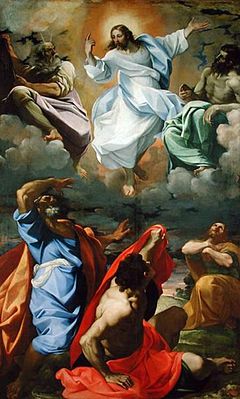Grace and Peace in Jesus Christ,
First, both denominations of our churches, the United Church of Christ and the United Methodist Church, have designated Sunday, March 10, as a special offering Sunday called “One Great Hour of Sharing.” Please see elsewhere in this newsletter for more information about how each denomination uses the proceeds of this offering and please prayerfully consider your donation to OGHS.
Secondly, when you give to our churches, what happens to the information? Confidentiality is very important issue for many people. They don’t want others prying into their giving patterns. Who are the people that know what you have given? First would be the Financial Secretaries. For many churches this is one person but ideally should be two people. The Financial Secretary collects the offering, counts how much has been received, records your individual or family giving, and deposits the money. They then notify the treasurer the amount deposited. They also report monthly to the Church Council the amounts that have been received. Sometimes quarterly but always annually, they report to you how much you have given. You may then use those reports to adjust your giving (hopefully more) and to report your charitable contributions to the IRS.
Another person who may know your giving is the Treasurer who works closely with the Financial Secretary and is sometimes a check upon their work. The main purpose of the Treasurer is to pay the bills of the church. Together with the Financial Secretary, the Finance Committee, and the Church Council, treasurers work to maintain the financial health of our churches. The Treasurer and the Financial Secretary are expected to maintain strict confidentiality as dictated by their fiduciary duties and law.
A final person who may or may not know your giving information is me, your Pastor. There is debate about whether or not a pastor should know this information. If I know who gives what will I be tempted to treat the big givers differently than the small givers? Truth be told, it is a real temptation. On the other hand, how can a pastor lead and guide a church without knowing all the information? The giving patterns of the members (and guests) of the church people is one tool, one small piece of information, that can help.
Most years, I don’t know and I don’t want to know who gives what to their church. I remain faithful in my giving and I pray that you will too. This year, however, I did review the giving patterns and it is very revealing. (However, if you were to ask me about who gave what I couldn’t tell you with any specificity. I don’t generally remember those details.)
Here is what I have learned.
1. There are many people who are giving generously, some, even, who are tithing. I can only guess that they are tithing because I don’t know anyone’s income. Some generous givers may be described as “big givers” but many are “small givers”. The actual dollars don’t matter as long as we are generous (Romans 12:8) and joyous (2 Corinthians 9:7).
2. There are a number of one or two time givers, usually guests or family members who attend once or twice a year. We give thanks for their generosity. If they live in the area we should be inviting them back to church because their presence is precious to the life of the church (without worrying about the money).
3. There are many in our churches who attend regularly who could give more. Some may only be able to give a little more but many can give much more. If you are able to give more, please pray about how much more you may be able to give and then please make that financial commitment.
So, what should we be giving? The “gold standard” is 10% of our annual gross income (Numbers 18:26 and Malachi 3:10). That is an Old Testament standard. The New Testament standard is generously and joyfully (see #1 above). Want to know how well you did? Divide the total amount reported on your church giving statement by the Adjusted Gross Income you reported to the IRS. The result will be a decimal. Move the decimal two places to the right and that is the percentage you gave. Example: You gave $1,354 and your AGI was $29,372. In dividing the result is 0.0460983. Moving the decimal to the right and rounding gives you 4.61%. Not bad, but can you give 6% this year or $1,762 (assuming your income stays the same)? (Full disclosure: I give 10.7% split between the two churches.) How have you done in your giving to the church? Is there room to grow in your giving? Can you step up to the next level with the future goal of tithing? I pray there is room and you are willing.
Peace in Christ,
Pastor Gary
